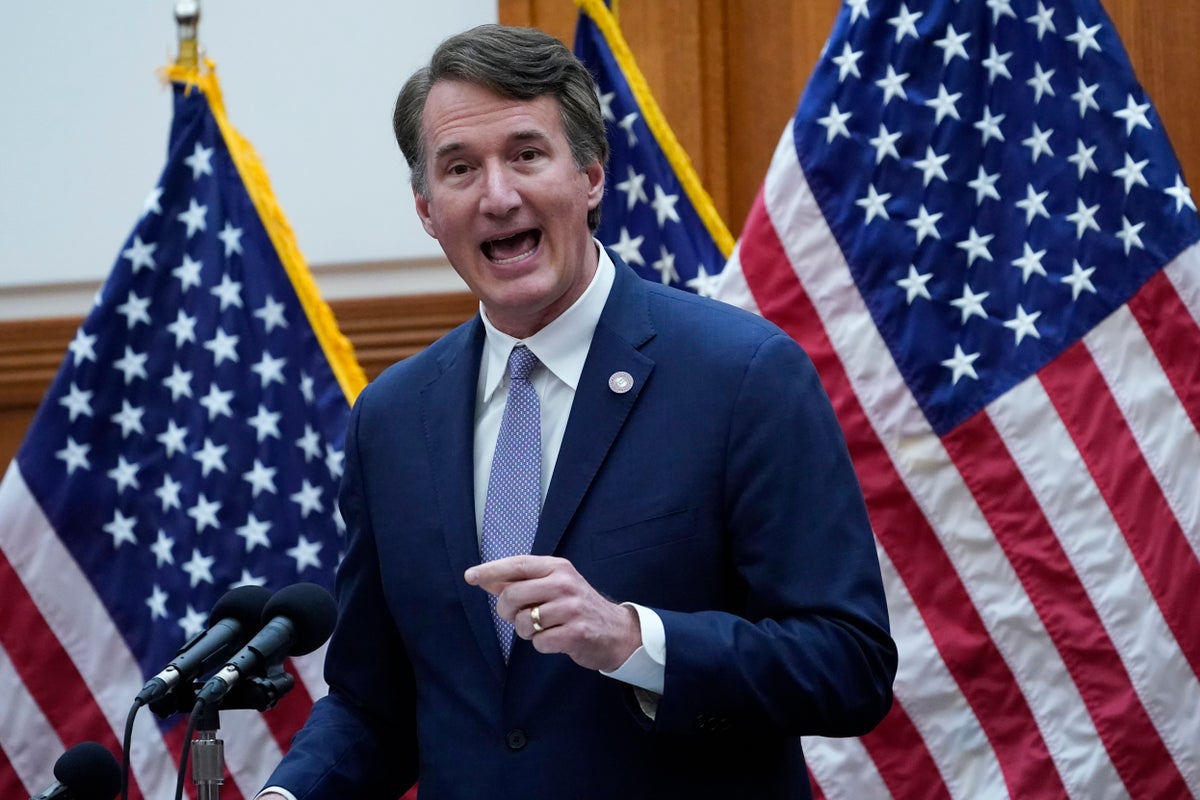
More than 300 state employees have resigned since Virginia Gov Glenn Youngkin announced a new policy in early May that required workers to return to in-person work by 5 July.
In the springtime, as an increasing number of blue and red states across the country began easing mask mandates and pandemic restrictions, the Republican governor sought to end the telework policy that had been in place for most Virginia state employees since 2020.
But despite receiving some pushback from Democratic Virginia lawmakers who called on the governor to reverse the state’s new telework policy when it was announced, specifically urging Gov Youngkin to turn over the decision to the heads of each state agency so they could work alongside their employees to map out appropriate return-to-work plans after the Labor Day holiday, the Republican governor forged ahead.
“We know that creative, innovative, and effective solutions for all Virginians occur with regular, in-person interaction by our incredible workforce here in the Commonwealth,” the governor said in a statement announcing the policy. “Since day one, my commitment to have a best-in-class government serving all Virginians has been clear, these updates balance the demands of government services with the needs of our public servants.”
Since that decision was ushered through, however, more than 300 employees from across five agencies in the state have received resignations, according to a Freedom of Information Act request filed by 8News.
In those records, it shows that 183 people resigned from the Virginia Department of Transportation, with 28 of those employees specifically citing the “telework options” as the cause for their departure, while two of those resignations from the VDOT did transfer to a different state agency.
Other agencies that documented resignations in the time since the announcement on telework was made include the Virginia Department of Health (VDH), the Virginia Employment Commission (VEC), the Department of Housing and Community Development (DHCD) and the Department of Emergency Management (VDEM).
The news outlet noted that the sampling of their records showed that five agencies had recorded resignations in the time window they’d requested information on, and they’d culled intel from several state agencies and departments but noted that it only represented a small sliver of all the workers employed by the state.
A substantial number of resignations were recorded at VDH (78 in total) and the third most were seen at VEC, with 37 in total between 5 May and 27 June.
Unfortunately, most of the departments didn’t specifically collect data on an employee’s reason for leaving their place of work though 29 of the VDH workers who resigned cited “Better Job,” three said “Dissatisfied,” six cited “Home Responsibilities,” while the remaining former employees listed either illness, relocation, education or other as their reason for leaving.
Gov Youngkin, a Trump-endorsed Republican who became the first GOP governor to hold the office in the Commonwealth since 2014, has been fervently trying push the once reliably Democratic state further to the right since assuming office in January 2022.
Within his first few days in office, he issued a slew of conservative executive orders that delivered on his campaign promises, including dropping classroom mask mandates, expanding the duties of a state diversity officer to include being an “ambassador for unborn children” and attempted to scrap Virginia’s participation in a carbon-limiting initiative meant to combat climate change.
In the immediate wake of the reversal of Roe v Wade, the Republican governor stated that he personally believes life begins at conception and promised to sign “any bill” hat crosses his desk that would seek to “protect life”.
“Any bill that comes to my desk I will sign happily and gleefully in order to protect life,” he said in June during an online forum organised by the Family Foundation of Virginia to celebrate the Supreme Court’s decision to reverse the landmark ruling that had legalised abortion nationwide.







